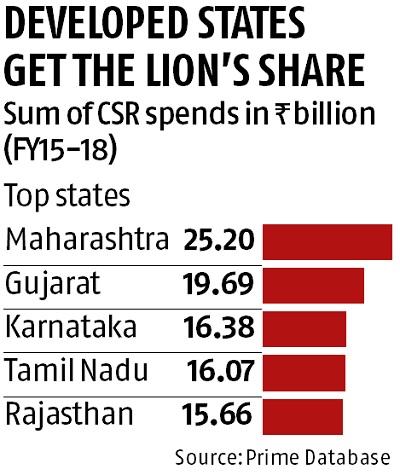7667766266
enquiry@shankarias.in
Why in news?
According to official estimates bulk of CSR is being spent on developed states like Maharashtra, Gujarat and Karnataka.
What is the CSR process in India?
What are recent findings on CSR in India?

What are the concerns highlighted by the report findings?
What measures needs to be considered?
Source: Business Standard